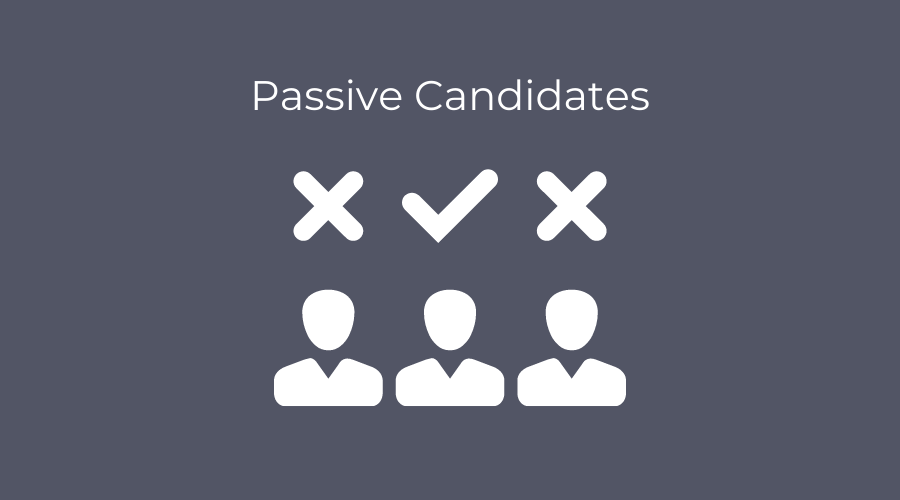
Passive Candidates – Are They Better?
One of the greatest myths in recruiting is that passive candidates make the best hires.
This fiction has been around so long, no one can say where it came from or if there’s even any evidence to support it. Yet, it’s so widely believed that there are thousands of articles with tips on how to approach passive candidates and why they’re so much better.
Before we get into what’s wrong with this notion, we need to define what a passive candidate is. A “passive candidate” is someone currently employed who is not job hunting.
That simple definition encompasses 70% to 80% of the workforce. If you think about it, calling someone not looking for a job a passive candidate is an oxymoron. They’re not even an applicant, let alone a candidate. But we’ll accept the contradiction and use the idiom.
To narrow the definition, most talent acquisition professionals will tell you the passive candidates they look for are open to the right opportunity. Many recruiters also believe that passive candidates are better performers.
Active candidates are those who are job hunting. They may or may not be employed, though most are. Because digital resumes and profiles make it so easy to apply for a job, recruiters overwhelmed with unqualified applicants have come to think of all active candidates, even those who do have the right qualifications and requirements, as second class. Their thinking goes something like this: If they were doing well and happy where they are, they wouldn’t be looking for another job.
People, including top talent, become active job seekers for any number of reasons having nothing to do with job satisfaction or performance. Two of the most common are a too long commute and family considerations. The latter includes moving to be closer to other family members, better schools or for more affordable housing.
The pandemic of the last year, which demonstrated to many employees the benefits of working from home, is now prompting a surge in workers looking for jobs where they can work remotely all or at least part of the time.
It also turns out that passive candidates are not all that passive. A LinkedIn survey found that 15% of passive candidates regularly reach out to their personal network quietly asking about job opportunities. Another 45% may not actively be taking steps to find a new job, but they are open to talking to a recruiter.
For jobs with such special or unique qualifications that those who have them are few in number — the kind recruiters call “purple squirrels” – searching them out may be the only way to fill the job. It’s also good recruiting practice to identify the best talent in the field for current or future openings. All the better if you can hire the best talent away from a competitor.
However, routinely passing over active candidates in favor of passive ones is shortsighted. It overlooks what should be obvious: active applicants who go on to become candidates want to work for you. They’ve done their homework about the organization, have learned about the company culture and are eager to win the job. Their gratitude translates into greater loyalty
Passive candidates have to be convinced. They don’t come to the table already interested and may not even have heard of your organization. Largely content where they are, they won’t be as motivated to learn about the company and its culture. That can become a serious problem later, especially since a key reason for a passive candidate to change jobs is money, according to the LinkedIn survey.
Active candidates on the other hand are most interested in career advancement.
Prof. Peter Cappelli, director of the Center for Human Resources at the Wharton School, says, “Employers spend a vastly disproportionate amount of their budgets on recruiters who chase passive candidates, but on average they fill only 11% of their positions with individually targeted people.”
Writing in the Harvard Business Review, he adds, “I know of no evidence that passive candidates become better employees, let alone that the process is cost-effective.”
That alone is a powerful reason for recruiters to give active candidates as much consideration as they do passive candidates and set aside the myth that one group is better than another only because they don’t apply.
### Contribution by John Zappe ###


